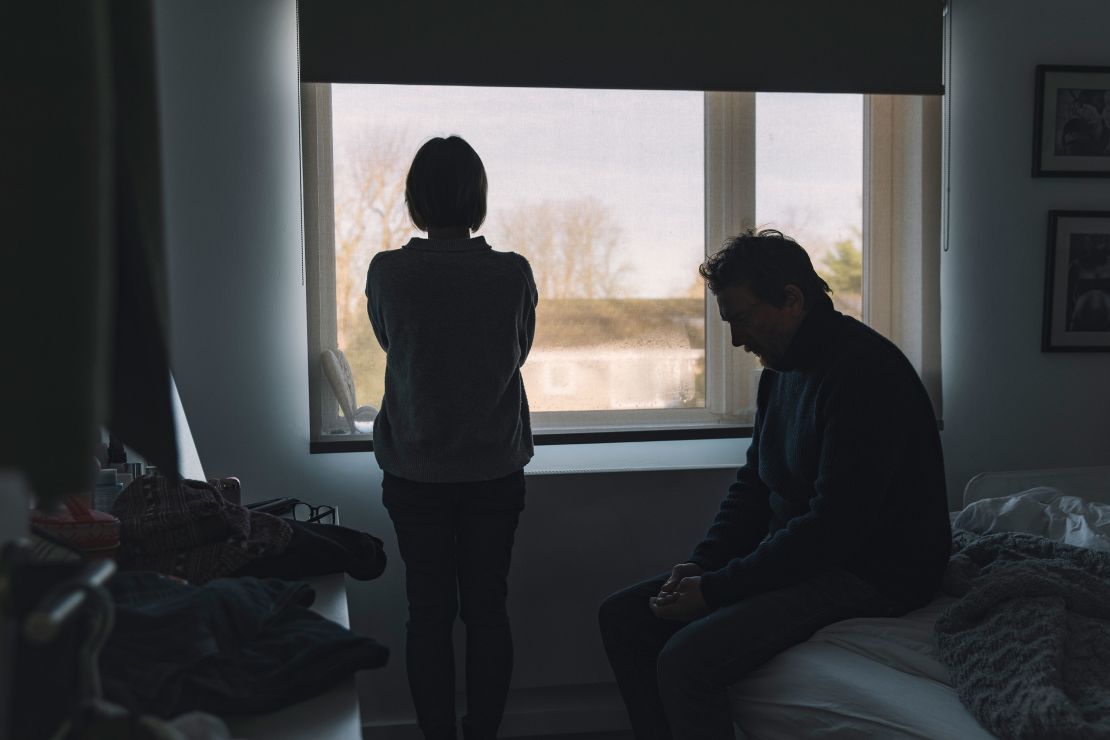Editor’s note: If you or someone you know is struggling with suicidal thoughts or mental health matters, please call the 988 Suicide & Crisis Lifeline by dialing 988 to connect with a trained counselor, or visit the?988 Lifeline website.
Close relatives of people with treatment-resistant depression?are nine times more likely to develop depression that also does not respond to traditional treatment, a new study found.
For people with treatment-resistant depression, also known as TRD, standard treatments such as psychiatric therapy and antidepressants may not work well, if at all. A person can be diagnosed with TRD after two rounds of different antidepressants fail to ease their symptoms.
The study is the first and largest to use an entire country’s data to confirm genetic transmission of TRD across families and an association with other major psychiatric disorders, said senior author Dr. Cheng-Ta Li, a professor of medicine at the National Yang Ming Chiao Tung University in Taipei, Taiwan.
Family members of people with TRD were also much more likely to develop other types of psychiatric conditions — such as anxiety, bipolar, obsessive-compulsive or major depressive disorder, and attention deficit hyperactivity disorder — as well as be more likely to die by suicide, according to the study.
“This is the most convincing evidence so far that treatment resistant depression tends to run in families,” said Dr. Andrew McIntosh, professor of psychiatry?at the Centre for Clinical Brain Sciences at the University of Edinburgh in Scotland. He was not involved in the study.
While the findings imply a genetic basis, family members might also share life events or socioeconomic disadvantages or other unidentified risk factors, McIntosh said via email.
“This is especially interesting because this subgroup might have different genetic and other causes for their depression that current antidepressants don’t address as well,” he said.

A case for early alternative treatments
The study, which published Wednesday in the journal JAMA Psychiatry, analyzed national health insurance data for the entire population of Taiwan for a 15-year period, including inpatient and outpatient medical records and prescription information.
More than half a million Taiwanese received a diagnosis of major depressive disorder in that time frame. Of those, more than 21,0000 people went on to be diagnosed with treatment-resistant depression, as defined by undergoing at least three separate courses of antidepressants without success within a two-year period — one more than typically needed for the diagnosis. ?
First-degree relatives of people with TRD, which include parents, siblings and children, were nine times as likely to develop treatment-resistant depression and were at high risk of all-cause death and death by suicide compared with relatives of people without TRD, the study found.
“The results from our study suggest that other treatment options might be considered earlier if the initial antidepressant treatment fails in depressed patients with a TRD family history,” Li said.
Such alternate treatments might include adding lithium and other atypical antipsychotics, low-dose ketamine, its cousin esketamine, or the use of repetitive transcranial magnetic stimulation, a form of shock therapy that doesn’t require sedation and is not associated with cognitive adverse effects, Li said.
“We have for far too long been content to focus on studies of people of European ancestries in Europe and North America (and) we often too easily assume that Europeans are representative of the globe,” McIntosh said. “So, this is a very welcome study indeed and goes someway to addressing the massive underrepresentation of Asian people in studies.”
Correction: A previous version of this story incorrectly interchanged ketamine and esketamine.



